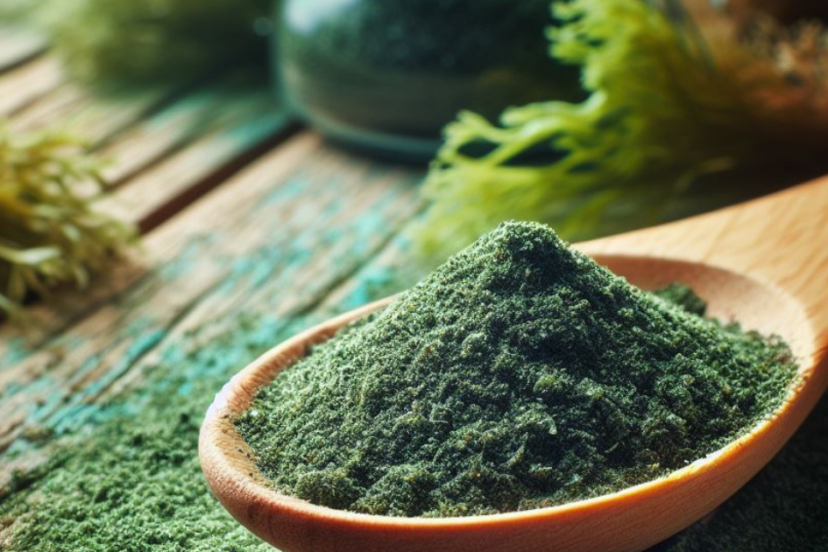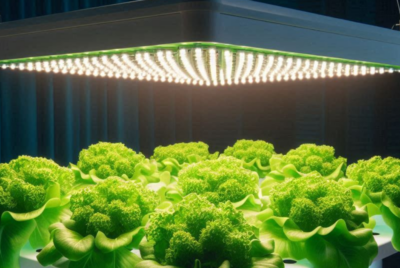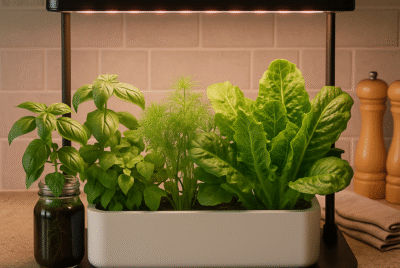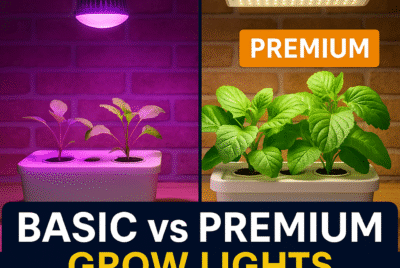Hydroponic Plant Food: Guide to Optimal growth & productivity
Introduction
Hydroponic gardening is an innovative and efficient way to grow plants without soil. In this article, we will explore the importance of hydroponic plant food and how it contributes to healthy plant growth in hydroponic systems. By providing essential nutrients in the right ratios, ensures optimal plant health and maximum productivity.
Benefits of Hydroponic Plant Food
In comparison to traditional soil-based gardening, hydroponic systems offer several advantages. One of the key benefits is the enhanced nutrient absorption and efficiency provided by hydroponic plant food. Since plants in hydroponic setups directly receive their nutrients through water, they can absorb them more effectively, leading to faster and healthier growth.
Essential Nutrients for Hydroponic Plants

Just like plants grown in soil, hydroponic plants require specific nutrients for their optimal growth. These nutrients can be divided into two categories: macronutrients and micronutrients. Macronutrients include nitrogen, phosphorus, and potassium, which are needed in larger quantities. Micronutrients, such as iron, calcium, and magnesium, are required in smaller amounts but are equally important for plant health.
Types of Hydroponic Plant Food
When it comes to hydroponic plant food, there are various options available in the market. Liquid hydroponic fertilizers are commonly used and provide a convenient way to deliver nutrients directly to the plants. Powdered hydroponic fertilizers are another option, offering easy storage and long shelf life. Organic hydroponic plant food, made from natural sources, is gaining popularity due to its environmentally friendly nature.
Understanding Nutrient Ratios
Maintaining the correct nutrient ratios is crucial in hydroponic gardening. Different plant growth stages require specific nutrient compositions. During the vegetative stage, plants require a higher nitrogen-to-phosphorus ratio to promote leafy growth. In the flowering and fruiting stage, a higher phosphorus-to-nitrogen ratio is needed to encourage blooming and fruit development. Understanding and adjusting these ratios is key to maximizing plant growth.
Choosing the Right Hydroponic Plant Food
Selecting the right ingredients depends on several factors. Consider the nutrient concentration, pH balance, and compatibility with your hydroponic system. Read product labels and choose a fertilizer that suits your specific plant types and growth stages. It’s important to follow manufacturer instructions regarding dosage and application methods for optimal results.
Application and Dosage
Proper application and dosage of hydroponic plant food are crucial for plant health. Dilute liquid fertilizers according to the instructions provided. Monitor the electrical conductivity (EC) and pH levels of your nutrient solution regularly to ensure they are within the recommended range. Adjust nutrient levels as needed based on plant requirements and system conditions.
Monitoring and Adjusting Nutrient Levels
Regular monitoring of nutrient levels is essential in hydroponic gardening. Keep an eye out for any signs of nutrient deficiencies or imbalances, such as yellowing leaves or stunted growth. Conduct periodic water and nutrient solution tests to detect any issues and make adjustments accordingly. Maintaining optimal nutrient levels is key to healthy and productive plants.
Organic Hydroponic Plant Food Options
For those who prefer organic gardening methods, there are organic hydroponic plant food options available. Organic fertilizers derived from natural sources offer a sustainable and eco-friendly approach. They provide essential nutrients while promoting soil and environmental health. Consider using organic hydroponic plant food for a greener and more sustainable gardening experience.
DIY Hydroponic Plant Food Recipes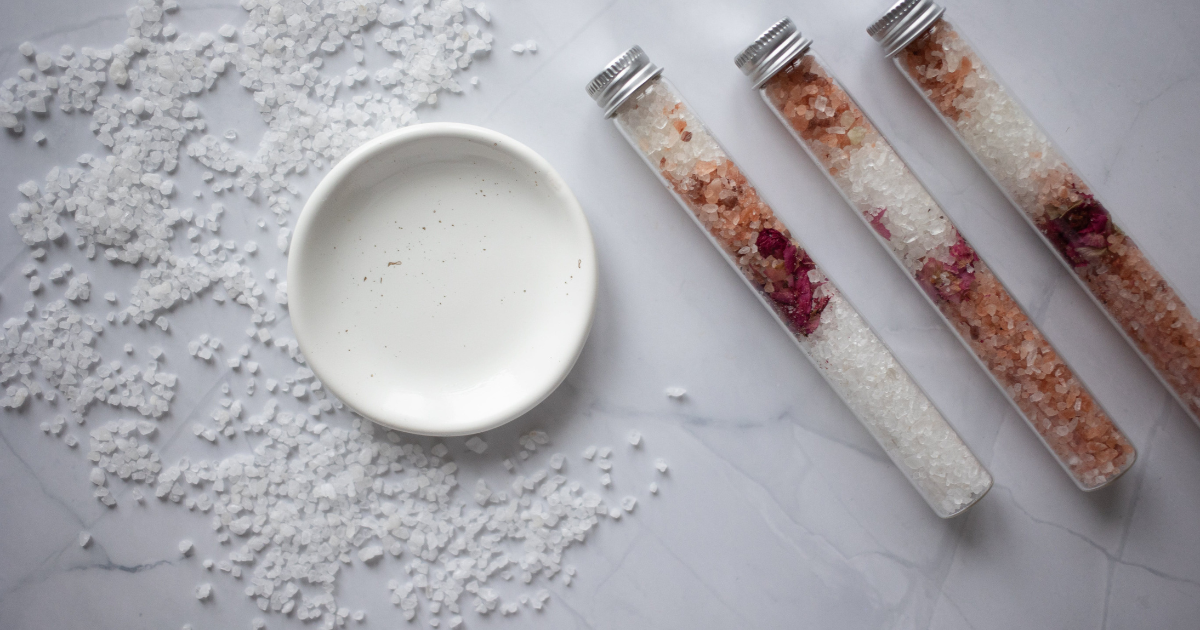
If you enjoy a hands-on approach, you can also create your own ingredients using common household ingredients. Homemade nutrient solutions can be prepared using items like Epsom salt, fish emulsion, and seaweed extract. These DIY recipes are cost-effective and allow you to tailor the nutrient composition to suit your plants’ needs.
Troubleshooting Common Issues
In hydroponic gardening, nutrient-related issues can arise. Nutrient lockout, pH imbalance, and nutrient deficiencies are common challenges. To troubleshoot these issues, ensure proper pH levels in the nutrient solution, maintain a balanced nutrient ratio, and flush the system if necessary. Regularly monitor your plants for any signs of nutrient-related problems and take appropriate corrective measures.
Conclusion
Hydroponic plant food plays a vital role in the success of hydroponic gardening. By providing essential nutrients in the right ratios, ensures healthy and productive plants. Consider the specific nutrient needs of your plants and monitor nutrient levels regularly.
Doing so will help you maintain optimal plant health and maximize your hydroponic gardening results. Whether you opt for liquid, powdered, or organic, remember to follow manufacturer instructions for application and dosage. Regularly monitor and adjust nutrient levels to prevent deficiencies or imbalances.
In conclusion, hydroponic plant food is a key component of successful hydroponic gardening. It provides essential nutrients to support healthy plant growth and productivity. By understanding nutrient ratios, choosing the right plant food, and maintaining proper application and dosage, you can ensure the best possible results in your hydroponic system.
FAQs (Frequently Asked Questions)
What nutrients do hydroponic plants need?
Hydroponic plants require essential nutrients such as nitrogen, phosphorus, potassium, iron, calcium, and magnesium for their growth and development.
How often should I apply hydroponic plant food?
The frequency of applying depends on the specific product and the growth stage of your plants. Follow the instructions provided by the manufacturer for best results.
Can I use regular plant fertilizers for hydroponic gardening?
Regular plant fertilizers designed for soil-based gardening may not be suitable for hydroponic systems. Nutrients are specifically formulated to provide nutrients in a water-based environment.
Is organic hydroponic plant food better than synthetic options?
The choice between organic and synthetic depends on personal preference and gardening goals. Organic options offer a natural and environmentally friendly approach, while synthetic options may provide precise nutrient control.
How can I prevent nutrient deficiencies in my hydroponic system?
To prevent nutrient deficiencies, maintain proper pH levels in the nutrient solution, monitor nutrient levels regularly, and adjust nutrient concentrations based on the needs of your plants. Conduct periodic water and solution tests to ensure optimal nutrient balance.
Remember, successful gardening requires careful consideration of nutrient requirements, proper plant food selection, and regular monitoring. By providing your plants with the right nutrients and maintaining optimal nutrient levels, you can achieve thriving and productive plants in your hydroponic system.
*We may earn a commission from purchases made through our links, at no cost to you. This does not affect our product recommendations. Please see our disclosure to learn more.

